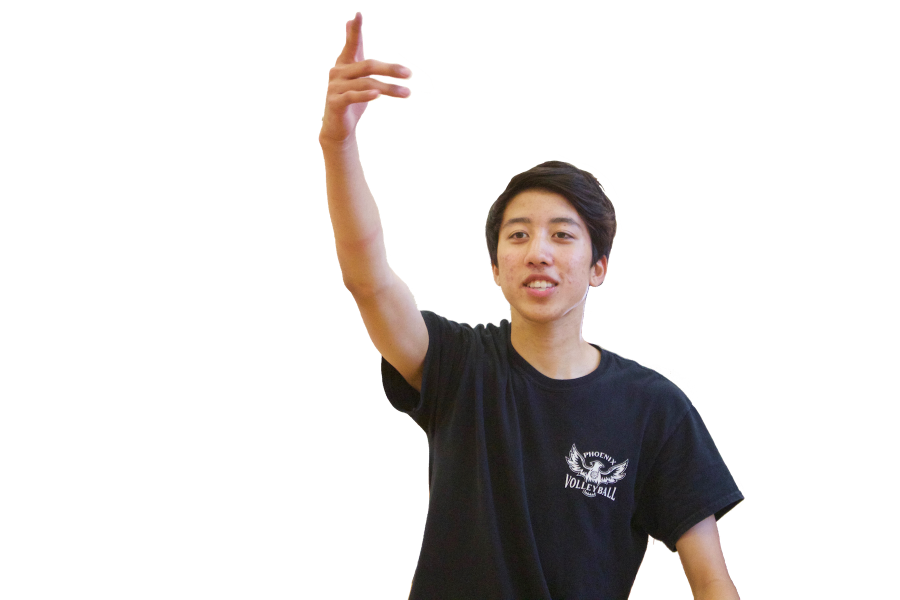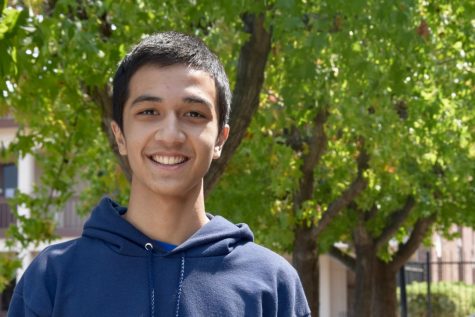Senior Christopher Liou plays defensive specialist on the boys varsity volleyball team. In addition to his weekly school season practices, Liou also plays club volleyball, practicing two hours a day, three days a week. However, every Saturday for the past two years, Liou has spent four hours as an assistant coach at the Phoenix Volleyball School in Santa Clara, teaching fundamental skills to middle and high schoolers.
Even though he wasn’t flying solo, he didn’t know how to interact with the young kids when he first started. Liou had to figure out the appropriate drills for individual skill levels.
“I worked almost as hard there as [I did] during a game,” Liou said.
As the kids were learning how to play volleyball, Liou was learning how to coach. According to Liou, the process was difficult and required an immense amount of patience on his part. Along the way, he learned how to build a respectful relationship with his players to help them accept his feedback more willingly.
”I wanted to become a better coach and really be able to help these kids out to become better volleyball players,” Liou said.
Liou says that the amount of respect he has for his own coaches has increased tremendously because of the amount of patience and persistence it takes to be a coach. He also says that gaining perspective helped him become more patient with the kids and work with them better.
“That persistence that a lot of my coaches had, I find truly admirable because I don’t think I would’ve [been able to] do it myself,” Liou said.
Similarly, senior Mansi Reddy, a center defender on the girls soccer team and former coach for American Youth Soccer Organization, a recreational soccer club for children and teenagers, agrees that coaching has given her a new perspective on why coaches make the decisions they do.
For example, Reddy explains that if a player has strengths such as speed in one position, the coach would place them in that position even if it wasn’t necessarily what the player had in mind. The responsibility falls on the coach, since management of players and talent is crucial.
“[After] being a coach, I kind of understand that there’s always a reason that I’m in the position that I am,” Reddy said.
In addition to perspective, Reddy explains that coaching has given her self-confidence in her skills as a soccer player.
“Once you master [a skill], that’s when you teach [it],“ Reddy said. “Just teaching made me feel like I accomplished something bigger and that I could actually pass on what I knew and apply what I’ve been learning.”
Likewise, Liou’s boss head coach Xiaofeng Foret gained the same sense of perspective as the owner of Phoenix for nine years. Foret started playing volleyball at age nine, and as her interest in the sport increased, so did her skills. From the school to the area to the province team, Foret ended up playing on the Chinese national team. However, something didn’t sit right with her, even at such a high position. Foret wanted to see the world and gain new experiences in countries besides China.
“I just [wanted] to open my eyes,” Foret said.
In search of new opportunities, Foret traveled to Turkey to play for their provincial team. Eventually, she came to the U.S. to finish her studies at Fresno Pacific University, graduating with a degree in kinesiology. Foret decided to open Phoenix Volleyball School after moving to the Bay Area to visit college friends.
“Even [though playing] is teamwork, it’s still individual. You play your own position. You show your skill. You show your talent,” Foret said. “But coaching you need more thinking.”
According to all three, despite the challenges that come with coaching, whether it be interacting with the children or getting used to taking control, the main reason they get back on the field everyday is because of the pride they feel while watching the kids improve.
“When you teach a kid a concept or skill and they finally get it, that’s a great feeling to have,” Liou said. “That sense of accomplishment is something that I try to get everyday.”







